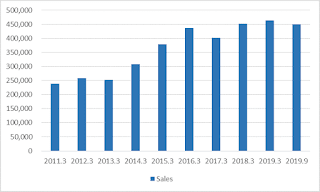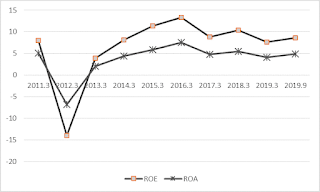NGK's financial results show strong demand for its products remains although sales decline
According to NGK's financial results for the second quarter of the fiscal year ending March 31,
2020, net sales were expected to fall 3.7% year on year to 219,766 million yen and net income to decline 14.0% to 21,244 million yen.
Slowing demand of insulators for electric
power businesses due to restrained capital investment by domestic power
companies and intensified competition overseas in addition to decreasing shipments
of NAS batteries pushed down its results.
On the other hand, in the ceramics
business, one of the company's main businesses, sales of the GPF (Gasoline
particulate filter) for gasoline passenger cars increased because of the
stricter emission regulations in Europe and China although the shipment of ceramic
catalyst carriers for automobile exhaust gas purification (HONEYCERAM) decreased
due to the global decline in passenger car sales.
Sales of sensors also
increased. Other elements having negative influence on the company’s results
were delays in market recovery due to US-China trade friction and restrained
capital investment by semiconductor manufacturers.
As for sales by the segments,
the electric power business decreased by 14.7%, the ceramics business increased
by 4.5% the electronics business decreased by 6.6% and the process technology
business decreased by 16.0%. For the full-year forecast, sales are expected to
decline by 3% to 450 billion yen.
However its efficiency remains as the chart
below shows and the company continue to provide us great investment
opportunities.





Comments
Post a Comment